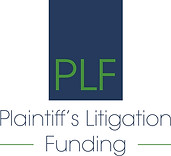In the realm of personal injury lawsuits, financial strain can be as distressing as the injury itself. Non-recourse funding offers a unique solution that alleviates this stress, providing plaintiffs with financial support without the typical risks associated with borrowing. Here’s a closer look at the benefits of non-recourse funding for personal injury cases, highlighting why it’s a preferred option for many involved in litigation.
What is Non-Recourse Funding?
Non-recourse funding, often referred to as lawsuit funding or a lawsuit cash advance, allows plaintiffs in personal injury cases to receive a portion of their potential settlement upfront. The key feature of non-recourse funding is that the repayment is solely contingent upon the outcome of the case. If the plaintiff does not win their lawsuit, they are not required to repay the advanced funds.
Advantages of Non-Recourse Funding
- No Risk of Personal Liability: The most significant benefit of non-recourse funding is that it does not require the plaintiff to assume any personal liability. This means if the lawsuit does not result in a settlement, the plaintiff owes nothing to the funding company.
- Immediate Financial Relief: Personal injury cases can take months or even years to settle, causing financial distress for the injured parties. Non-recourse funding provides immediate financial support to cover living expenses, medical bills, and ongoing care costs, allowing plaintiffs to maintain their standard of living while they await the court’s decision.
- Empowers Plaintiffs: This type of funding empowers plaintiffs to hold out for a fair settlement rather than accepting a lower offer due to financial pressures. With their immediate financial needs covered, plaintiffs can afford to give their lawyers the time needed to negotiate a more favorable settlement.
- Simple Application Process: Applying for non-recourse funding is typically straightforward and involves minimal paperwork. Funding decisions are based on the strength of the case rather than the plaintiff’s credit history, employment status, or income level.
- Helps Avoid Debt: Since repayment depends on the case’s success, plaintiffs do not accumulate traditional debt as they would with a loan. This can be particularly beneficial for those who may be out of work or have high medical expenses due to their injury.
Choosing a Non-Recourse Funding Provider
When selecting a non-recourse funding provider, it’s important to research and choose a company that is transparent about its terms and fees. Plaintiffs should look for providers that offer clear, concise contracts and fair funding rates. It is also advisable to consult with a personal injury attorney who can provide guidance and help negotiate the best possible funding terms.
Conclusion
Non-recourse funding offers a financial lifeline for many personal injury plaintiffs, providing them with the necessary resources to endure the lengthy process of legal claims. By understanding the benefits and selecting a reputable provider, plaintiffs can leverage non-recourse funding to secure their financial well-being while pursuing justice for their injuries. This funding mechanism not only alleviates immediate financial concerns but also strengthens the plaintiff’s position in settlement negotiations, leading to potentially better outcomes.
